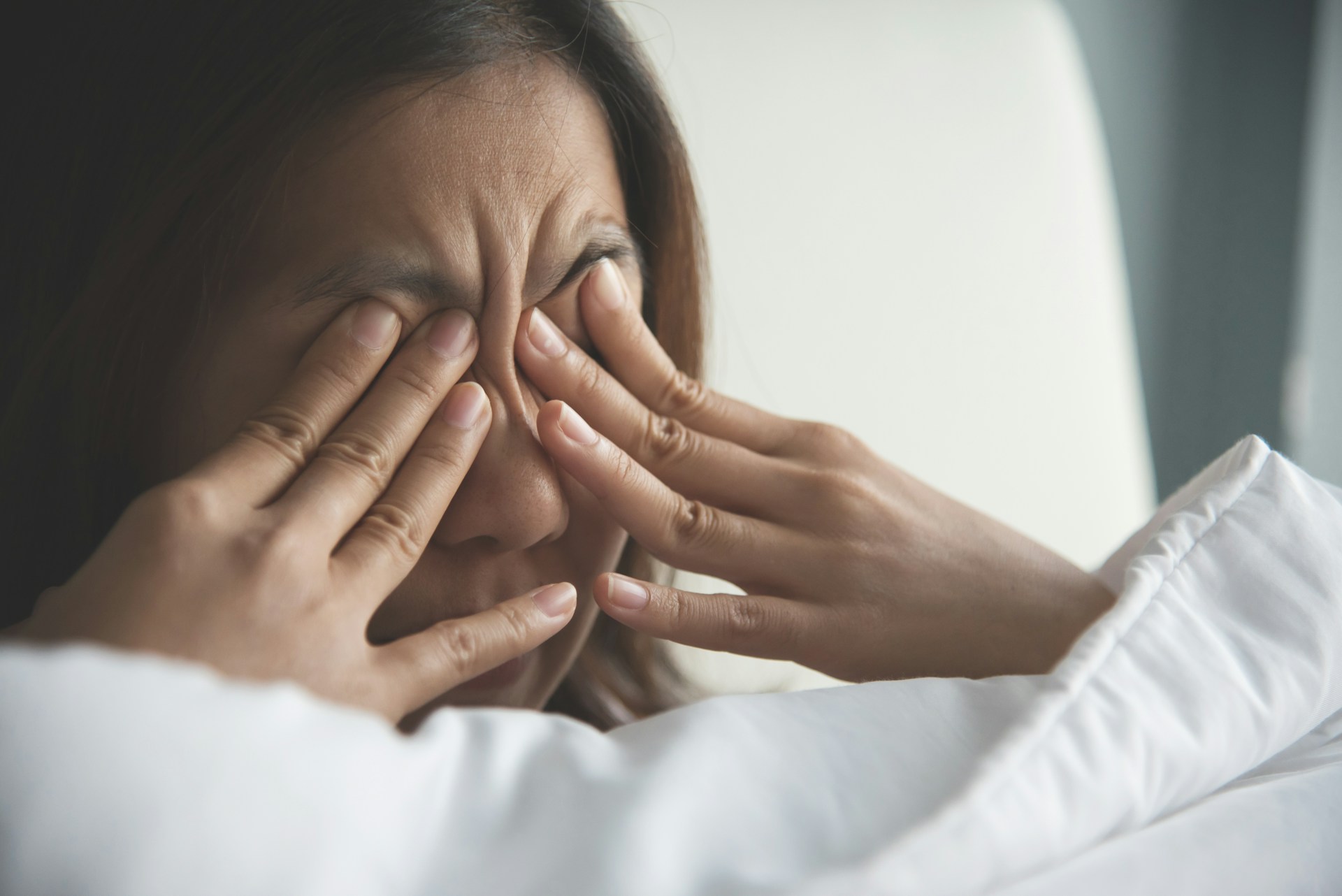Health
Feeling Fatigued? Here Are 8 Signs You Might Be Iron-Deficient

Iron is a crucial mineral, serving multiple functions in our bodies, including aiding in the generation of red blood cells, fostering growth, and strengthening our immune system. A key role of iron is to assist in the production of hemoglobin, a protein in red blood cells, as explained by Dr. Daniel Landau, an oncologist and hematologist for The Mesothelioma Center.
He points out, “Our body requires certain vitamins and minerals as building blocks for our health. Our hemoglobin cells, which function to carry oxygen throughout the body, require iron, B vitamins, and folic acid specifically.”
Iron deficiency, one of the most prevalent deficiencies worldwide often flies under the radar, leading to potential health complications. According to Landau, “When our body is low in iron… decreased production of red blood cells can occur. When we have fewer red blood cells, the body cannot get oxygen in all the places that oxygen is required.”
How then can we ensure sufficient iron intake, given that our body cannot produce it? The American Red Cross (ARC) advises a balanced diet. They explain, “There are two types of iron in foods: heme iron and non-heme iron. Heme iron is found in red meat, poultry and pork and is most easily absorbed by your body. Non-heme iron is not as easily absorbed by your body but is still a good source of iron and essential if you don’t eat meat.”
Nonetheless, recognizing an iron deficiency isn’t always straightforward. The best way to know is through a blood test your doctor can perform, but there are also signs that you might not be getting enough iron.
Iron deficiency can lead to anemia, which significantly impacts energy levels, causing fatigue, says Landau. Registered dietitian Emily Van Eck explains this symptom often goes unnoticed, particularly in women. She says, “Fatigue and iron deficiency are both quite common in women, but they are not always tied together.”
Iron deficiency is also linked with heavy menstrual bleeding. Estimates from University College London indicate up to 90 percent of girls and women dealing with heavy menstrual bleeding are also iron deficient.
Abnormal cravings can also be a sign of iron deficiency, notes Landau. “Low counts of red blood cells can cause an added strain on certain organs… the body can go into a desperation mode, which can cause people to try and find iron in odd sources. This leads to Pica.”
Iron deficiency can lead to neurological symptoms such as headaches, difficulty concentrating, and dizziness, according to Van Eck. Furthermore, changes in skin color and nail condition, and an irregular heart rhythm can be indicators, too.
Tinnitus, or the experience of hearing a “whooshing” sound in your ears that aligns with your pulse, might also be a sign of low iron levels. It is wise not to self-diagnose or self-treat but report it, as suggested by Hoffman Audiology, a medical group in Irvine, California.
If you’re experiencing any of these symptoms, reach out to your healthcare provider. They may recommend a change in diet, supplements, or treatments for any underlying issues causing the iron deficiency. Ensure to communicate your health concerns with your doctor and together, develop a plan to maintain your health.
Let us know what you think, please share your thoughts in the comments below.

Health
The Surprising Link Between Bathroom Habits and Organ Health: What Experts Want You to Know

The health of your kidneys and liver, indispensable organs in your body, play a pivotal role in maintaining your overall wellness. They take on multiple indispensable tasks, predominantly executing the crucial function of waste filtration. Maintaining these organs in a healthy condition often involves a multifaceted approach, encompassing a nutritious diet, consistent physical activity, and moderated alcohol consumption. However, recent studies bring our attention to a surprising aspect that may potentially impact your kidneys and liver adversely: the frequency of your bowel movements.
In an intriguing research endeavor, analysts from the Institute for Systems Biology (ISB) took on the mission to comprehend what the regularity of an individual’s bowel movements might indicate about their long-term health. The results, published recently in Cell Reports Medicine, are based on the detailed analysis of medical, lifestyle, and multi-omic data obtained from over 1,400 healthy adults.
Through a careful examination of this data, the researchers have identified four distinct categories of self-reported bowel movement frequencies: constipation (one to two bowel movements per week), low-normal (three to six bowel movements per week), high-normal (one to three bowel movements daily), and diarrhea.
Interestingly, the study highlights that the healthiest bowel movement frequency was observed in the high-normal group, i.e., individuals who reported bowel movements one to two times per day. These individuals exhibited a higher count of fiber-fermenting gut bacteria that is often linked to optimal health.
Johannes Johnson-Martinez, a PhD candidate at ISB and the primary author of the study, commented:
“Prior research has shown how bowel movement frequency can have a big impact on gut ecosystem function.”
He continued, “Specifically, if stool sticks around too long in the gut, microbes use up all of the available dietary fiber, which they ferment into beneficial short-chain fatty acids. After that, the ecosystem switches to fermentation of proteins, which produces several toxins that can make their way into the bloodstream.”
Contrastingly, constipation and diarrhea present on the extremes of the bowel movement frequency spectrum were associated with potential health threats. The study pointed out decreased kidney function in individuals who experienced less frequent bowel movements and fell under the ‘constipated’ category.
The research revealed that p-cresol-sulfate and indoxyl-sulfate, toxins produced by microbes due to protein fermentation and known to harm kidneys, were found to be predominant in the blood of constipated individuals.
“‘Here, in a generally healthy population, we show that constipation, in particular, is associated with blood levels of microbially derived toxins known to cause organ damage, prior to any disease diagnosis,” said Sean Gibbons, PhD, ISB associate professor and the paper’s corresponding author.
Conversely, the study discovered a correlation between diarrhea and “higher levels of inflammation and blood markers of reduced liver function,” as Gibbons reported to Today.
According to Gibbons, “Overall, this study shows how bowel movement frequency can influence all body systems, and how aberrant bowel movement frequency may be an important risk factor in the development of chronic diseases.” He went on to stress that these findings could help in formulating strategies to manage bowel movement frequency, optimizing health and wellness even amongst healthy populations.
For those looking to improve their bowel movement habits, gastroenterologist Will Bulsiewicz, MD MSCI, who wasn’t part of the study, suggests increasing fiber intake. He informs us that “95 percent of Americans are deficient in fiber,” emphasizing that “Fiber helps to normalize our bowel movements and get us into that sweet spot where the gut microbiome is optimally healthy and our bowels are moving at just the right pace, without diarrhea or constipation.”
Let us know what you think, please share your thoughts in the comments below.
Health
Your Guide to 15 Top Foods for Managing High Blood Pressure According to Doctors

Embarking on a heart-healthy journey involves more than just exercise; it involves making significant dietary choices. Incremental changes to your eating habits can greatly impact your heart health, especially if you suffer from high blood pressure. Certain foods are known to support cardiovascular health and offer blood pressure regulation properties. Here, we collate advice from top doctors to list 15 nutritious foods that can help you maintain a healthy blood pressure.
1. Low-Sodium Foods
Reducing sodium intake can contribute to lowering your blood pressure. Stephen Vogel, MD, advises that cooking food at home allows control over salt content, and choosing low-sodium options when dining out can also help.
“Water retention puts stress on your arteries, just like cranking up your garden hose,” says Vogel.
2. Berries
Berries like blackberries, raspberries, strawberries, and blueberries are rich in antioxidants that help stabilize blood pressure. Blueberries are particularly beneficial due to their high anthocyanin content, says cardiologist Nieca Goldberg, MD.
3. Fish
Fish, especially those high in omega-3 fatty acids like salmon and trout, can assist in lowering blood pressure. Vogel suggests incorporating at least two servings of fish per week into your diet to benefit from its lean protein and healthy fats.
4. Olive Oil
Substituting less healthy fats with extra virgin olive oil can help reduce blood pressure. This monounsaturated fat is rich in polyphenols, which are linked to better metabolic health according to Vogel.
5. Vegetables
Vegetables not only have a low sodium content but are also high in fiber. Vogel notes that consuming 25 to 30 grams of fiber per day can improve blood pressure.
6. Beets
Beets offer benefits beyond their high fiber content. They are rich in natural chemicals that can improve blood pressure upon conversion to nitric oxide in the body, explains Vogel.
7. Almonds
Almonds, rich in healthy fats and magnesium, are beneficial for blood pressure regulation, blood sugar control, and cholesterol management, Vogel points out.
8. Broccoli
Regular consumption of broccoli, due to its high calcium and magnesium content, is associated with lower blood pressure, Goldberg suggests.
9. Bananas
Bananas, an excellent source of potassium, can help regulate blood pressure, says Daniel Landau, MD.
10. Avocados
Avocados are another high-potassium food, beneficial in lowering the risk of hypertension and improving blood pressure levels, according to Goldberg.
11. Beans and Legumes
Beans and legumes, high in fiber, potassium, calcium, and magnesium, can help lower blood pressure, as noted by Goldberg.
12. Oatmeal
Oats, rich in beta-glucan, can support heart health and blood pressure control, Landau advises.
13. Cinnamon
Cinnamon, used regularly, can help maintain healthy blood pressure. Landau recommends adding it to oatmeal for a potent blend.
14. Yogurt
Yogurt, high in calcium and potassium, can aid in lowering blood pressure, states Goldberg.
15. Fruits – Kiwi and Citrus
Kiwis and citrus fruits like oranges are good choices to lower blood pressure due to their high potassium and flavonoid content, Goldberg concludes.
Adopting a heart-healthy diet is more than just about single food choices; it’s about creating sustainable habits that positively impact overall health. So, go ahead, revamp your meal plan, incorporate these heart-supporting foods, and take a step towards a healthier, happier heart.
Let us know what you think, please share your thoughts in the comments below.
Health
Discover the Speech Clues That May Signal Cognitive Health Changes

As our age advances, so do the health risks we face. Among these, cognitive decline, often a harrowing symptom that may signal dementia and Alzheimer’s disease, is particularly frightening. Though risk factors and early indications of cognitive decline have been deeply researched, new findings continue to emerge. A recent study from November 2023, published in Aging, Neuropsychology, and Cognition, has discovered a speech pattern that could potentially serve as an early warning sign of cognitive decline.
The study was conducted by researchers from Baycrest’s health science center and the University of Toronto. They examined whether patterns in speech could predict the onset of cognitive decline. Previous research suggested word-finding difficulty (WFD) as a potential indicator, but this is also a common sign of aging. The pace of speech, whether fast or slow, however, might offer a clearer warning signal.
Jed Meltzer, PhD, Baycrest’s Canada Research Chair in Interventional Cognitive Neuroscience and lead author of the study, said in a press release, “Our results indicate that changes in general talking speed may reflect changes in the brain.” He added, “This suggests that talking speed should be tested as part of standard cognitive assessments to help clinicians detect cognitive decline faster and help older adults support their brain health as they age.”
This groundbreaking study evaluated both talking speed and WFD in adults across a broad age range of 18 to 90 years. All 125 participants underwent three different assessments, including a picture-naming game which tested their ability to identify and name the images while ignoring distracting words played through headphones.
The second assessment tasked participants with describing two complex pictures within sixty seconds each. Their speech pace and pauses were analyzed using AI technology. The final assessment comprised of standard tests to evaluate various mental abilities, including executive function.
Post the completion of these assessments, researchers found that WFD and certain other abilities tend to decrease with age – an expected outcome. However, what intrigued them was that the reduced ability to recognize and remember an object’s name in a picture was not connected to a decline in other mental skills. Furthermore, there was no link between pauses while finding words and brain health.
The press release explains: “Instead, how fast participants were able to name pictures predicted how fast they spoke in general, and both were linked to executive function. In other words, it wasn’t pausing to find words that showed the strongest link to brain health, but the speed of speech surrounding pauses.”
Therefore, the researchers concluded that a noticeable slowdown in normal speech could be a more significant marker of cognitive decline than struggling to find the right words. However, this connection needs further exploration, and researchers suggest repeating these tests with the same participants over several years to confirm if speech speed indeed forecasts cognitive decline.
Let us know what you think, please share your thoughts in the comments below.
-

 Health10 months ago
Health10 months agoPreventing Falls and Injuries for Seniors
-

 Nutrition6 months ago
Nutrition6 months agoThe Aging Secret of Vitamin D Unveiled
-

 Nutrition10 months ago
Nutrition10 months ago5 AMAZING Dinner Recipes That Are Also HEALTHY
-

 Health2 months ago
Health2 months ago17-Second Neuropathy Solution
-

 Health1 month ago
Health1 month agoOncologist Reveals Top 5 Cancer Prevention Tips You Shouldn’t Ignore
-

 Lifestyle2 months ago
Lifestyle2 months agoSleep Soundly with These 11 Expert-Approved Bedtime Routines
-

 Health7 months ago
Health7 months agoDownsizing Tips: Simplifying Your Lifestyle
-

 Health5 months ago
Health5 months agoBoost Your Heart Health: Simple Tips for Seniors